|
Check in browser - Consulte esta página |
| SOCIO-LEGAL MASTER | WORKSHOPS | RESIDENCE GRANTS | VISITING SCHOLARS | LIBRARY | PUBLICATIONS | SOCIO-LEGAL NETWORK |
| Oñati-IISL eNewsletter - eBoletín del IISJ-Oñati. Number 60, July 2020 | |||||||||||||
|
|
|||||||||||||
|
|||||||||||||
|
2021 workshop calendar Calendario workshops 2021 |
|||||||||||||
|
Call for Presential and Virtual Workshops This year, the IISL has launched the Virtual Workshop modality for 2022.
2. Virtual workshops can be held from October 2021 to March 2022. Read the full Regulations for Virtual Workshops or Apply for a Virtual Workshop.
Alternatively, you can apply for a Presential Workshop. The deadline for applications is the same (5 February), but these workshops will be held from April 2022 to July 2022. Read the full Regulations for Presential Workshops or Apply for a Presential Workshop. For further information: m.gordoa@iisj.es |
|||||||||||||
|
|
|||||||||||||
|
Oñati Socio-legal Series Call for Special Issues
Oñati Socio-Legal Series (OSLS or The Journal) invites proposals for Special Issues. The call is aimed to scholars who are interested in leading a team of contributors toward publishing a thematic issue in 2022 about any aspect in the socio-legal field. Proposals may or may not be related to IISL hosted workshops. We are especially interested in issues that address subjects recently not covered in the journal and their themes shall fall within the field of socio-legal studies widely understood; for more information, please consult the journal Archives. In accordance with its tenets, the journal encourages and especially welcomes proposals from teams with an adequate gender balance, inter-generational dialogue, and diversity of origin. The proposal should include at least the following points:
The proposals will be analyzed internally by the Editorial Team, and a response will be sent to each submitter. If accepted, the Guest Editors and the managing editor will work together on a timescale to ensure that the special issue is published at some point in 2022. The Guest Editors will have to send to the managing editor a list of confirmed contributors and a list of potential reviewers, whom the OSLS Editors may add to those of their choice. From then on, the issue in production will follow the usual procedure that is applied for every issue of Oñati Socio-Legal Series and which is thoroughly explained in the journal policy section. The deadline for the proposals is 27 November 2020. Please submit them to Leire Kortabarria, managing editor of Oñati Socio-Legal Series, at l.kortabarria@iisj.es along with any questions that you may have. Vol 10, n. 4 (2020): Investigations-Investigaciones-Ikerlanak August 2020 Michał Dudek, Mateusz Stępień: Power Distance between Judges and Witnesses and Judicial Innovations. Preliminary Innovation Ideas from Theoretical and Empirical Research [+PDF] Mauro Cristeche: Capital Accumulation, Public Policies and Human Rights in Argentina. Contributions for debates on economic, social and cultural rights [+PDF] Fabio Ratto Trabucco: The Latvian direct democracy tools in a comparative European context [+PDF] Victoria Capriles, Andrea Santacruz, Rogelio Pérez-Perdomo: Represión, Justicia y Derecho en la Venezuela de hoy (2013-2019) (Repression, justice and law in today’s Venezuela (2013-2019)) [+PDF] Claudia Jiménez Cortés: Cuando las personas se vuelven “mercancías”: Respuestas jurídicas para luchar a favor de las víctimas y contra las mafias que trafican en el Mediterráneo (When people become “merchandise”: Legal responses to fight in favor of the victims and against the mafias that traffic in the Mediterranean sea) [+PDF] María Cecilia Johnson: Posiciones en disputa frente a la regulación de las TRHA: El caso argentino (Positions in dispute against the regulation of ARTS: The Argentinian case) [+PDF] Riccardo Mazzola: “I Make an Oath and Say as Follows”: Yolngu Judicial Discourse on Sacred Art and Copyright [+PDF] Emilia T. Kowalewska: Between civic and legal constitutionalism: Dynamics of Poland’s constitution-making projects of the 1990s [+PDF] Xenia Chiaramonte: The Struggle for Law: Legal strategies, environmental struggles and climate actions in Italy [+PDF] |
|||||||||||||
|
Oñati International Series in Law and Society (Bloomsbury-Hart)
This book describes how mediation has failed to take the place of courts and lawyers, even where public funding for legal help has been removed. Instead ODR has developed rapidly, led by the Dutch Rechtwijzer. The authors question the speed of this development, and stress the need for careful evaluation of how far these services can meet the needs of divorcing families. |
|||||||||||||
|
Services offered at the Library:
|
|||||||||||||
|
Thank you to all the donors who sent us their publications between February and July Alexander Ugalde Zubiri, Angel J. Rodrigo, Anne Griffiths, Anne Trebilcock, Caterina García, Cecilia Montes, Claudio Sarzotti, Constanza Sánchez Avilés, Daniela Ronco, Diana Durán, Félix Arias-Schreiber Barba, Francisco Javier Blázquez Ruiz, Francisco Vértiz, Gabriela A. Oanta, Gema Varona Martínez, Gilberto Cristián Aranda Bustamante, Giovanni Torrente, Josep Ibáñez Muñoz, Joxerramon Bengoetxea, Laura Movilla Pateiro, Mauro Palma, Oriol Casanovas, Pablo Leandro Ciocchini, Roberta Camineiro Baggio, Sergio Cotta, Sharyn Roach Anleu, Stephan Parmentier, Stina Bergman, Susana Borràs Pentinat, Valerio Pocar, Vincenzo Ferrari, Fundación Iura Vasconiae, Konrad-Adenauer-Stiftung, Universidad Autónoma de Madrid, Universidad de Deusto, Universidad Diego Portales. [+Access the library catalogue] [+Visite el catálogo de la biblioteca] |
|||||||||||||
Learn more about our Residence Grants [+] |
|||||||||||||
|
Recent Visitors to the Institute / Han visitado el Instituto |
|||||||||||||
|
You will find an unique atmosphere to research or write, with the best Library and Documentation Center [+] on Law and Society to make research. Disfruta de un ambiente único para investigar o escribir, en la mejor Biblioteca y Centro de Documentación [+] sobre sociología jurídica para desarrollar tu investigación. Visiting Scholars / Investigadores visitantes
|
|||||||||||||
| To unsubscribe, please send an e-mail to onati@iisj.es Si quiere darse de baja de este servicio, por favor, envíe un correo a onati@iisj.es |
|||||||||||||
|
IISL-Antigua Universidad s/n - Apdo.28 20560 Oñati - Gipuzkoa - Spain |

 After two intense years serving as Scientific Director (SD) at the Oñati Institute for the Sociology of Law (IISL) for the 2018-2020 term, the time has come for me to write my farewell letter. The experience acquired during that time has served to confirm my previous impressions about the outstanding quality of the services that the IISL provides to socio-legal scholarship all over the world. But it also gave me new insights, and elements of judgement, about the strengths and weaknesses of this unique institution created in 1989, which soon gained a distinctive and lasting global reputation. As the rare and beautiful flower that the IISL is, it is also a particularly vulnerable institution in an increasingly cool-blooded context of austerity measures, fierce academic competition, digital technologies and restructuring of higher education all over the world. [
After two intense years serving as Scientific Director (SD) at the Oñati Institute for the Sociology of Law (IISL) for the 2018-2020 term, the time has come for me to write my farewell letter. The experience acquired during that time has served to confirm my previous impressions about the outstanding quality of the services that the IISL provides to socio-legal scholarship all over the world. But it also gave me new insights, and elements of judgement, about the strengths and weaknesses of this unique institution created in 1989, which soon gained a distinctive and lasting global reputation. As the rare and beautiful flower that the IISL is, it is also a particularly vulnerable institution in an increasingly cool-blooded context of austerity measures, fierce academic competition, digital technologies and restructuring of higher education all over the world. [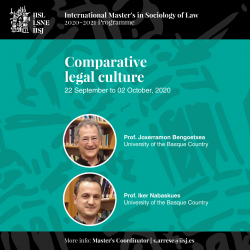
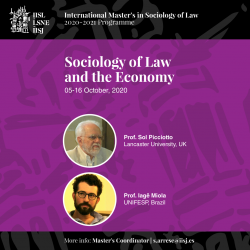
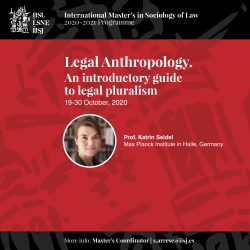
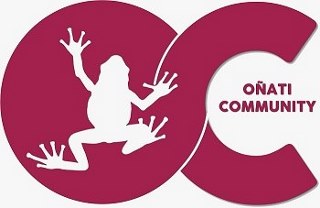 Oñati Community
Oñati Community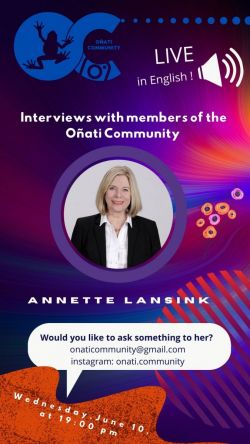
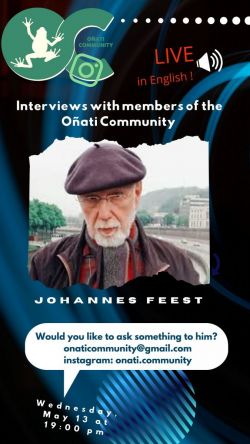
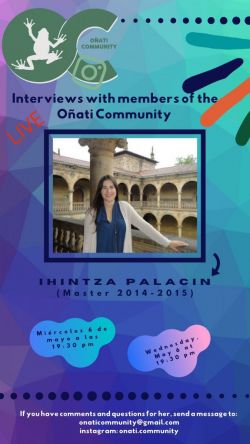
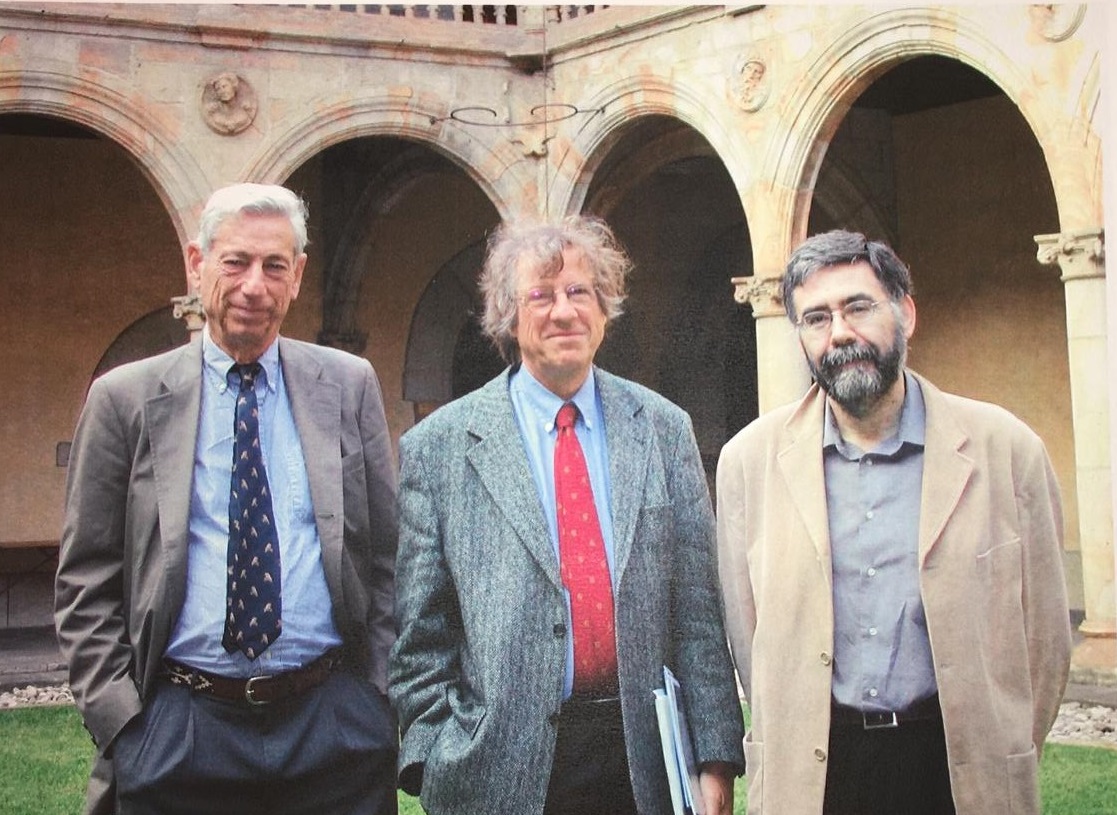 Manolo Calvo grant
Manolo Calvo grant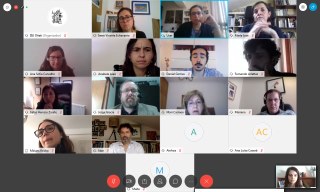 1. Applications to organise a virtual workshop must be received by the 5th of February 2021.
1. Applications to organise a virtual workshop must be received by the 5th of February 2021.

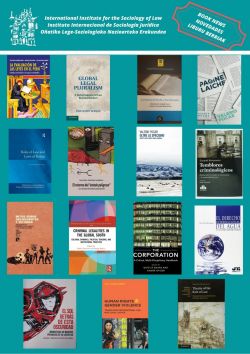
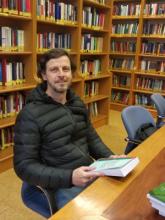
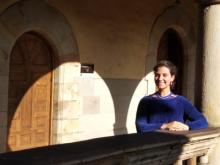
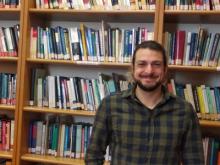
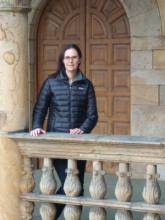
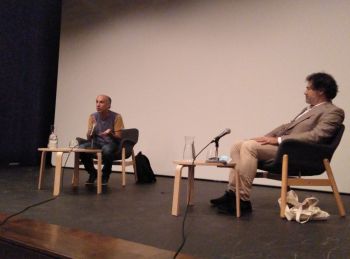 El sociólogo y profesor de la UPV Ignacio Mendiola ofreció el 14 de julio una interesante charla titulada "Reflexiones sobre la práctica político-punitiva de la tortura", donde compartió parte de su pensamiento y obra acerca del tema. Dijo, entre otras cosas, que puesto que "es muy difícil aplicar un gradiente de daño" a la tortura, en su opinión, ésta es "la negación absoluta del cuidado" en una situación en la que la persona queda "desnuda frente al poder" que ejerce la tortura. Dijo además que, para que exista tortura, siempre debe haber un Estado que la aplica, y que la tortura se produce en el contexto de un Estado de derecho que ejerce la tortura y "permite" que ésta se produzca.
El sociólogo y profesor de la UPV Ignacio Mendiola ofreció el 14 de julio una interesante charla titulada "Reflexiones sobre la práctica político-punitiva de la tortura", donde compartió parte de su pensamiento y obra acerca del tema. Dijo, entre otras cosas, que puesto que "es muy difícil aplicar un gradiente de daño" a la tortura, en su opinión, ésta es "la negación absoluta del cuidado" en una situación en la que la persona queda "desnuda frente al poder" que ejerce la tortura. Dijo además que, para que exista tortura, siempre debe haber un Estado que la aplica, y que la tortura se produce en el contexto de un Estado de derecho que ejerce la tortura y "permite" que ésta se produzca.

